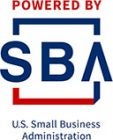As 2021 rolls in, small businesses will look to the annual ritual of beginning to prepare for filing taxes. In this post, we focus on relevant tax changes and ways that small business owners can reduce their 2020 tax burden.
We reached out to Joe Orlando, CPA, CGMA, and Business Development Director at Markum LLP, to highlight tax items that warrant consideration in advance of preparing your taxes or meeting with your tax professional.
As an important note going into the topic, we recognize many individuals and sole proprietors file their small business taxes as part of their individual tax returns. While there are a number of additional strategies that can be used to reduce overall individual tax liability, in this post we have focused on an overview of tax strategies related to small business and self employment. Please consult a tax professional for more information about tax laws and changes that apply in your situation, and for assistance with properly planning tax strategies and reporting your taxes.
Tax Handling of Payroll Protection Plan Funds
Late breaking news: Following the Covid-19 relief package passed in late December 2020, expenses paid with PPP funds are now tax deductible.
Throughout the year, legislators asserted that expenses covered by PPP loans (including payroll, mortgage interest, rent, and utilities) could be deducted, but the IRS held fast that deducting expenses paid with money that would not ultimately be counted as income would amount to a double tax benefit. Small businesses have been left in the lurch as to where the chips would fall.
On December 20, 2020, Congress reached a deal on additional stimulus funding that not only authorized another round of PPP funding, but also overrode the IRS to clarify that small businesses may deduct their business expenses paid with PPP funds, whether or not the loans have been forgiven yet.
COVID-19-related early retirement withdrawal
Under the CARES Act, if an individual, or their spouse or dependent, is diagnosed with COVID-19—or is otherwise economically harmed by having to close a business or quarantine, the individual can draw up to $100,000 from their IRA, pension plan, or 401(k) plan in 2020 without paying the 10% early withdrawal penalty. The income from this distribution will be taxed over a period of three years, or the withdrawals may be re-contributed back into a qualified retirement plan at any time during those three years to eliminate otherwise-reportable taxable income.
Minimizing 2020 small business taxes
Outside of tax changes that specifically affect small business funds, here are a number of additional strategies worth considering to minimize small business taxes for 2020.
1. Take a home office deduction
While the Tax Cuts and Jobs Act (TCJA) suspended the home office deduction for employees who work from home, the deduction still applies for self-employed individuals who have a home office that is used primarily for business activities. This deduction may apply to a number of small business owners who previously worked in an office but had to shift to working from home during the pandemic.
2. Defer income
If your small business uses the cash method for accounting, you can defer billing and collections for products and services until year-end. Businesses using the accrual method of accounting can delay shipping products or delivering services.
3. Accelerate expenses
Cash basis taxpayers can consider accelerating expenses by paying for their expenses by year-end. Credit card expenses are deductible in the year charged rather than the year paid.
4. Acquire assets
For some business situations, acquiring assets can be an important part of good tax planning. Depending on asset type, assets with a useful life longer than one year must generally be depreciated over a period of years. However, as part of the TCJA, favorable provisions were revised and made available for depreciating fixed assets—thus maximizing deductions in the year the asset was acquired.
The Section 179 expensing election allows businesses to deduct 100% of the cost of qualifying assets, rather than recovering them over time through depreciation. The maximum amount that can be expensed for 2020 is $1.04 million, which is reduced (down to zero but not below) by the amount which the total cost of qualifying assets exceeds $2.59 million.
5. Take bonus depreciation
Previously limited to 50% bonus depreciation, the TCJA established that bonus depreciation (which relates to a percentage of the cost of the asset rather than a fixed dollar amount, as in Section 179 depreciation) can now be taken up to 100% in the first year for qualified assets placed into service through December 31, 2022, with a recovery period of 20 years of less. Bonus depreciation applies to both new and used property and was expanded to include qualified film, television, and live theatrical productions. (Bonus depreciation is scheduled to be gradually reduced from January 1, 2023 through December 31, 2026.)
Bonus depreciation can apply to more spending each year than Section 179 deductions. We recommend that you read more about the differences between Section 179 and bonus depreciation and discuss your options with a tax professional.
6. Make SEP contributions
If you are self-employed, consider setting up a self-employed retirement plan (SEP) or other type of retirement plan in order to maximize your allowable retirement contribution each year. For 2020, SEP contribution limits are limited to 25% of your compensation, up to a maximum of $57,000.
You have until the tax filing deadline (including extensions) to set up a plan and make contributions for a tax year. While you also have until the tax filing deadline to make profit sharing contributions, a new plan needs to be established no later than December 31 of the tax year.
We know that for many, thinking about taxes comes hot on the heels of preparing your small business for a pandemic winter. As you navigate this annual requirement and look toward spring, we recommend working with a tax professional for support minimizing your tax liability while remaining in compliance with the most up-to-date tax laws.




